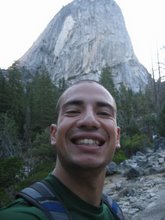I've been drawn to Buddhism for sometime now. I've read a few books specifically on Buddhism and many philosophy books that have many of the same values and views as Buddhism. The more time I spend here in the Thailand the more I want to learn and discover. I have a truly once in a lifetime opportunity to become a monk at a temple here in Tak where the head monk speaks English. I after my teaching contract is up at the end of February I will spend the month of March living at the temple. I found some information on the internet that gives a brief explanation of what it means to become a monk in Thailand.
http://www.sukhi.com/the%20monk.htm
The short-term monk
Since a Buddhist monk is not required to make a lifetime commitment, there are those who wear the robes for only a brief period of time - a few weeks, a few months, even a few days - as well as those who remain in the monkhood for many years or a lifetime.
In Theravadin Buddhist countries (such as Thailand), a man is regarded as 'unfinished' if he has not served, for however briefly, as a monk. Therefore, most young men will be ordained, usually before marriage, for a period of three months, during the rainy season lasting from mid July to mid October.
One of the motives for a short term ordination is to 'earn merit' for one's parents. Another is to prepare oneself for life as a layman, householder, and family head.
While in robes, the short-term monk lives under the same conditions and with the same discipline as the long-term monk. Each morning he leaves the temple grounds to make his neighbourhood rounds carrying his alms bowl, in which local residents place food for his sustenance. He eats only two meals a day (some eat only one meal), and after noon no food, except liquids, is eaten. He meditates, he chants, he studies the Dhamma, he obeys all the monastic precepts. Yet he is best perceived as a layman wearing the robes temporarily, rather than as a monk who has renounced the layman life. (A monk may disrobe whenever he wishes, with the permission of his abbot, permission is never denied and easily granted.)

No comments:
Post a Comment